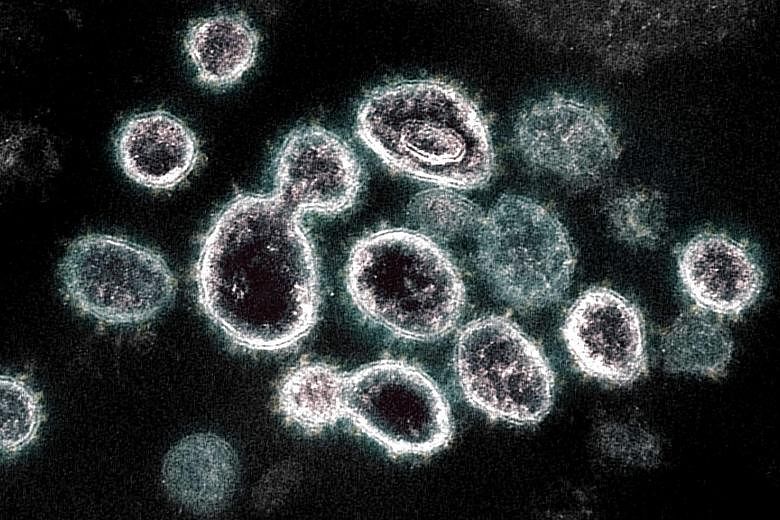Scientists from the Singapore-MIT Alliance for Research and Technology (Smart) have developed a more precise method of detecting numerous viruses, including Sars-CoV-2 which causes Covid-19.
The researchers said the Rapid Digital Crispr Approach (Radica) method can provide the specific viral load of a sample, potentially determining how infectious a person is and what containment measures should be taken.
They added that it is also faster and cheaper to carry out tests using the Radica method than the reverse transcription polymerase chain reaction (RT-PCR) tests, described as the "gold standard" of Covid-19 tests.
Details of the new method were published in the peer-reviewed journal Biomaterials last month.
Professor Hanry Yu, co-corresponding author of the study, told The Straits Times on Tuesday that PCR tests have two main drawbacks.
First, the cycle threshold value, or CT value, which they produce does not tell exactly how many units of a virus there are in a sample. Prof Yu said the same sample can give different CT values on different testing machines.
"So the implication is when you perform one test today, and another test in another site, the same sample will probably have different results," added Prof Yu, who is also co-lead principal investigator at Smart's Critical Analytics for Manufacturing Personalised-Medicine (Camp) group.
He is also a professor at the Mechanobiology Institute at the National University of Singapore.
Prof Yu said there exists a more precise version of the PCR method, known as the digital PCR method. But it requires about four hours to produce results. Conventional PCR tests can take about an hour, said Dr Xiaolin Wu, a postdoctoral associate at Smart Camp.
The second drawback is that all PCR tests require expensive, specialised machinery as samples need to be put through a wide range of temperatures.
Dr Wu, who was involved in the research, said that when a sample is taken using the Radica method, it is first mixed with proteins that target specific parts of a virus' DNA. A minuscule probe, made up of DNA that reacts with the protein, is also added to the mix.
The mixture is then divided into 10,000 tiny compartments on a chip, known as microwells.
Because the protein seeks out only the virus, only the microwells that have traces of the virus will cause the probe to react.
When viewed on a computer screen, these compartments will appear to light up, allowing researchers to tell exactly how many units of a virus there are in a sample. This makes Radica more precise than existing PCR methods, said Prof Yu.
He noted that these days, Singapore' system is a lot more refined with the kind of infection control measures it takes. In order to implement more precise measures, more precise testing is required.
"As we see almost everybody getting vaccinated, as new variants come in, do we want to completely lock down or quarantine everybody? You need to have more precision to determine... whether someone has a lot of the virus in the body or a little, if this person is a superspreader or not," said Prof Yu.
As Radica does not require samples to be put through a wide range of temperatures, the method could be processed using simpler, cheaper machinery.
It is also faster than digital PCR tests, and can produce results in about 40 to 60 minutes.
It can be used not just to detect Sars-CoV-2, but to also find contaminants in food and drugs, helping with the quality control process during manufacturing.
Prof Yu said the team is working with a local start-up to validate their method on a mass scale and get it commercialised.
They have also approached the Health Sciences Authority and the Ministry of Health for approval, but it will be some time before the method can be employed here.


